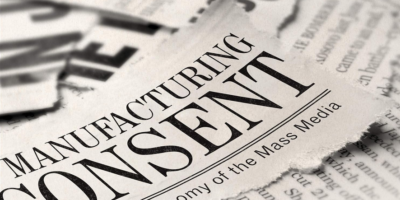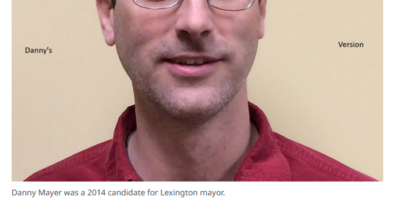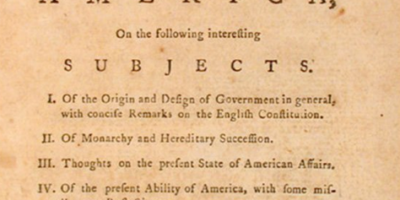By Joe Anthony
Perhaps presidents should avoid White House correspondents’ dinners. I know. We need to smile at our foibles, lighten up. And laughter can bring a certain comfort. Who hasn’t laughed, laughed hard sometimes, at a funeral? Still, the skit where W. Bush searched all over—under tables, behind doors— looking for those pesky Weapons of Mass Destruction left me cold. And the moment when President Obama threatened tween idols the Jonas brothers with predator drones if they went over the line with his daughters went over the line with me. I don’t mean I was put off by the clichéd humor of the overbearing father; I mean the realization came to me as he said it: Wait: real boys are being killed, real little girls, too. By predator drones. It may be militarily necessary to get at those terrorists. I don’t know. But this man is ordering these attacks. Is it something to joke about at a dinner?
Back when Cheney and company kept building up the power of the presidency until it loomed like Gibraltar over the rest of us, I often wondered: do they think the Republicans will always occupy the White House? Don’t they worry that all this power will one day be in the hands of a Democrat? The wheel will turn. Now we have a Democrat as president, a man I admire and support. But I have to ask myself and my fellow progressives the same question I put to the Republicans. Is the presidency too powerful? Is this power a threat to our freedoms?
In his new book, Bomb Power: The Modern Presidency and the National Security State, Garry Wills argues that the threat of nuclear annihilation has allowed presidents to accumulate tremendous powers. Certainly, the Iraq war was the latest example. When Condoleezza Rice evoked mushroom clouds, very few of our politicians—or our news outlets—could withstand the pressure. Give the president the power he wanted, they argued. He might know best.
But I would argue that our presidents have been accumulating and abusing power long before the bomb became a reality—or even when it wasn’t in the picture.
Consider our wars and how we entered them. President Polk lied us into the Mexican war in 1846. Fifty two years later, President McKinley let the yellow press hysteric us into remembering a Maine that never was for the Spanish American War. And the war that followed, the one that crushed the Filipino liberation struggle, involved another series of lies. The Gulf of Tonkin, the official reason for our entry into the Vietnam War, never happened but the secret bombing of Cambodia did. Placed within this history, our missing weapons of mass destruction have a long, inglorious prelude.
Presidents have often sought to curtail our freedom. John Adams’ Sedition Act was widely condemned and may have led to his reelection defeat—as it should have since it seriously curtailed freedom of the press. But that act pales next to the Espionage Act of 1917. A progressive president, Woodrow Wilson, a president who enacted many wonderful changes from child labor laws to anti-trust legislation, initiated this law. His Attorney General A. Mitchell Palmer prosecuted it with all the zeal of a Torquemada and with some of the same anti-Semitism, zeroing in especially on Jewish radicals such as Emma Goldman. His anti-Semitism didn’t lead him to neglect native-born radicals such as Protestant Eugene Debbs, who was sentenced to ten years simply for criticizing the Espionage Act. Palmer’s assistant, J. Edgar Hoover, carried on the same secret-police methods into the 70’s.
Placing the term “progressive” in front of the name of president is simply not protection enough. Another progressive hero of mine, Franklin Delano Roosevelt, imprisoned tens of thousands of Japanese-Americans without hearing or trial. So now we have one more progressive president. I believe his heart is in the right place, but he has too much power. He has too much power and his successor, whose heart might not be in the right place, will have too much power. That power leads Obama into the same secrecies, the same sense of entitlement that it has led all our presidents. I was proud that our latest would-be-terrorist was given his Miranda rights. But in the face of Republican criticism, Obama’s Attorney General, Eric Holder, is talking about modifying that right for accused terrorists, American citizen or not. No, I thought. Say that this right, this information that we can remain silent and consult a lawyer, is basic and not to be modified.
But then I wondered: is he bending before Republican attacks or are he and Obama thinking, yes, that Miranda right is an inconvenience. All our rights are inconvenient to those whose power it impedes. Our founding fathers, imperfect human beings that they were, knew better than to trust any one man or institution. Perhaps they were looking at each other and not just power-mad George III. Lord Acton was talking about popes, not presidents or kings, when he spoke about power corrupting. Popes, presidents, kings. They need to be checked. If the president does it, Nixon infamously said, it is legal. Is it such a stretch to worry about this accumulating power? Too Tea Party-ish?
It isn’t just Obama’s bad joke about predator drones that disturbed me. It was the realization that this president, or any president, could take just about anyone out whom he deemed a national security risk. Anyone. With nary a Miranda in sight.




Leave a Reply